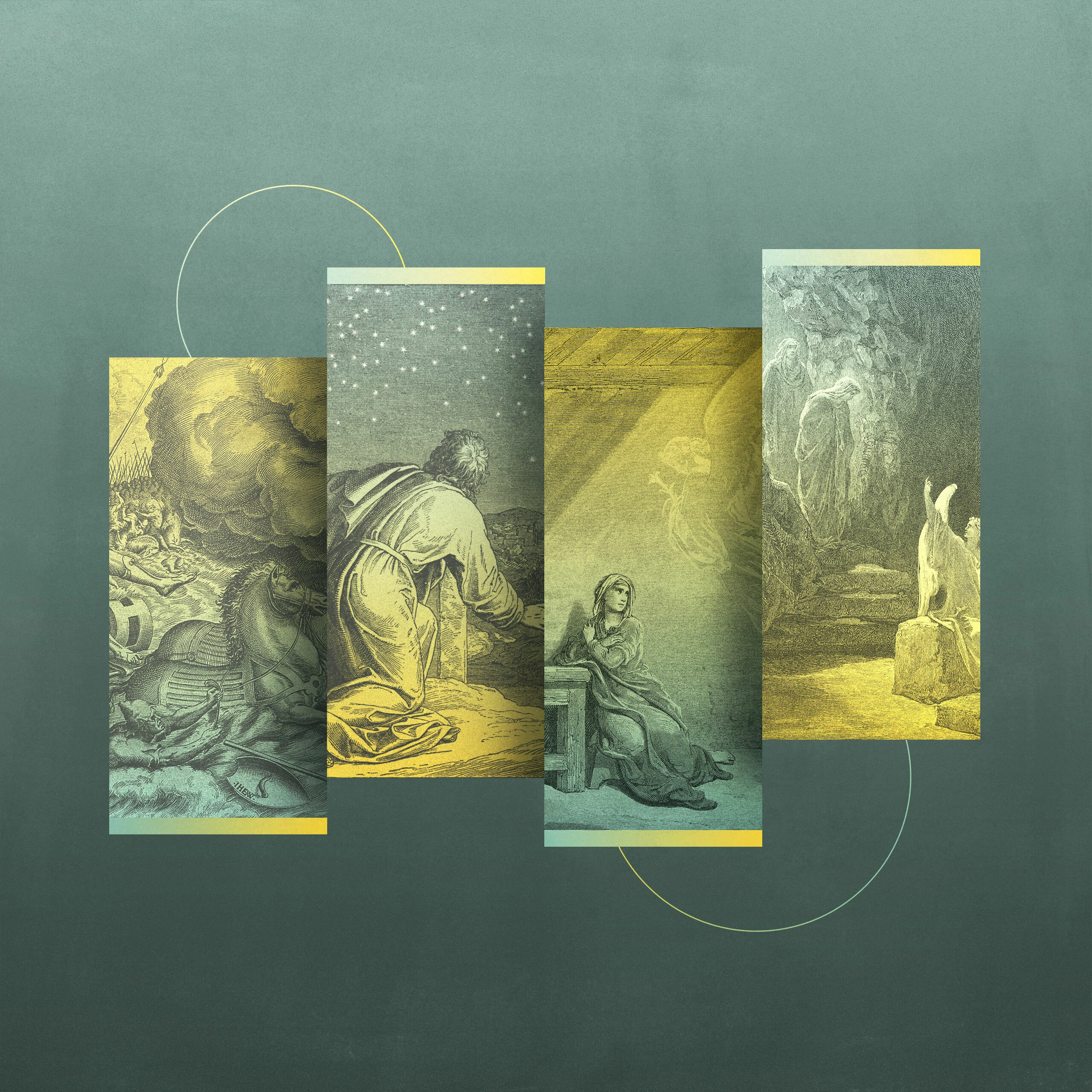Salvation in Scripture

The Bible begins with the creation of the heavens and earth (Gen. 1–2), and it concludes with the creation of a new heavens and earth (Rev. 21–22). Creation and new creation frame the entire redemptive-historical content of Scripture and place it in its proper God-centered context. In other words, the redemption of man is not the ultimate end or goal; it is penultimate. Scripture is not man-centered. It is God-centered. The ultimate end or goal is God and His glory. The redemption of man serves that ultimate goal.
The culminating act of the six days of creation in Genesis was God’s creation of Adam and Eve. But man is not an end in himself. The seventh day indicates that man is created to worship his Creator. God made a covenant with the first man, commonly called the covenant of works. In this covenant, “life was promised to Adam; and in him to his posterity, upon condition of perfect and personal obedience” (Westminster Confession of Faith 7.2). Sadly, Adam and Eve chose to take the word of the serpent over the word of their loving Creator. They sinned against God and became incapable of obtaining eternal life through the covenant of works (Gen. 3). Their descendants are born in this same condition of utter lostness.
The story of salvation in Scripture begins as soon as Adam falls into sin. Instead of leaving Adam and Eve in a permanent state of enmity with Himself, God tells the serpent that He will “put enmity between you and the woman, and between your offspring and her offspring.” God then adds this fascinating promise: “He shall bruise your head, and you shall bruise his heel” (Gen. 3:15). This is a declaration of war by God against the serpent, and it is an announcement of grace to Adam and Eve. Everything we read from this point forward is God working toward the ultimate fulfillment of these initial promises.
Mankind initially spirals downward, further and further into corruption and sin, and God judges the world with the flood (Gen. 6–9). The few remaining survivors continue in sin, and God confuses their language and disperses them across the earth (Gen. 11). But then God calls Abram and makes a covenant with him. Among the promises made to Abraham:
I will make of you a great nation, and I will bless you and make your name great, so that you will be a blessing. I will bless those who bless you, and him who dishonors you I will curse, and in you all the families of the earth shall be blessed. (Gen. 12:2–3, emphasis added)
It will be through a son of Abraham that the work of man’s salvation will be accomplished.
The second Adam is the head of a new humanity, and in the greater exodus, He brings His people out of sin and darkness and brings them into His kingdom to worship God, to be in union and communion with God, and to enjoy God forever.
Ultimately, Abraham’s descendants are enslaved in Egypt. While there, they grow into a numerous people (Ex. 1:7). After four hundred years, God tells Moses what He is about to do and commands Moses to tell the people:
Say therefore to the people of Israel, “I am the Lord, and I will bring you out from under the burdens of the Egyptians, and I will deliver you from slavery to them, and I will redeem you with an outstretched arm and with great acts of judgment. I will take you to be my people, and I will be your God, and you shall know that I am the Lord your God, who has brought you out from under the burdens of the Egyptians. I will bring you into the land that I swore to give to Abraham, to Isaac, and to Jacob. I will give it to you for a possession. I am the Lord.” (Ex. 6:6–8, emphasis added).
“I will bring you out, and I will bring you in.” This is what God does in His paradigmatic Old Testament work of redemption. When the prophets speak later of a future, greater work of redemption, it will be described using exodus terminology.
During the exodus, God gives His law to His people and lays the foundation for that which is to come, a kingdom within the promised land. The kingdom, however, does not last because of the sins of the kings and of the people. God warns them through the prophets, but they refuse to repent and are sent into exile. The prophetic warnings of coming judgment are not, however, the last word. God promises that on the other side of judgment, He will do a work of redemption greater than the first exodus. He will send a messianic king to His people to save them. He will establish a new covenant and create a new heavens and new earth.
Hundreds of years later, an angel appears to a young woman in Israel and announces to her that her son will be this promised messianic king (Luke 1:26–33). His name will be Jesus, “for he will save his people from their sins” (Matt. 1:21). Jesus is the One who has come to crush the head of the serpent. He is the son of Abraham through whom the nations will be blessed (Matt. 1:1). He is the promised Suffering Servant who is pierced for our transgressions and crushed for our iniquities (Isa. 53:5). He died for our sins (1 Cor. 15:3), and whoever believes in Him shall be saved (John 3:16; Acts 16:31).
The second Adam is the head of a new humanity, and in the greater exodus, He brings His people out of sin and darkness and brings them into His kingdom to worship God, to be in union and communion with God, and to enjoy God forever. The salvific work of Jesus Christ and its application to His people is one of the most glorious doctrines in Scripture. In this series of articles, we will look at how the church has understood (and sometimes misunderstood) the biblical doctrine of salvation and attempt to explain why a correct understanding of this doctrine is so important for our Christian life.


